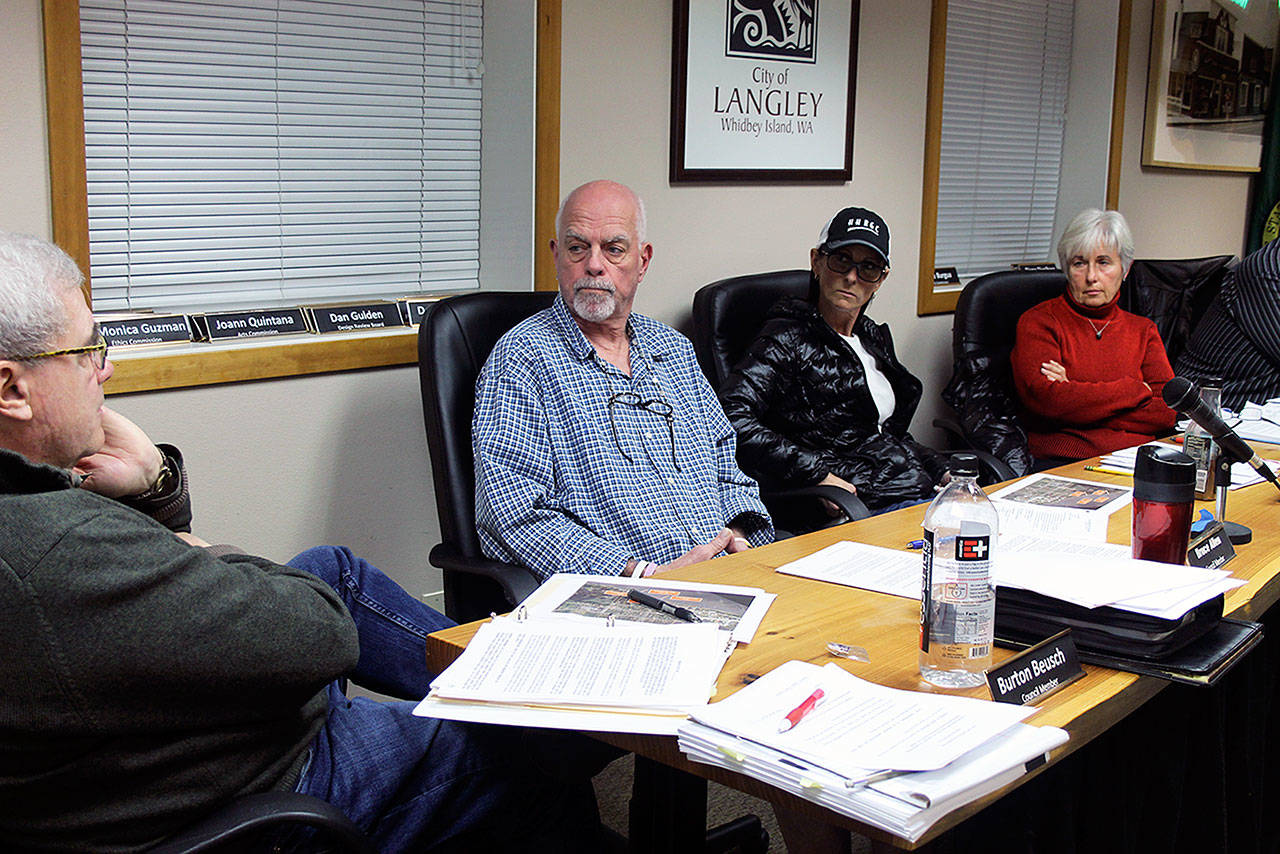Langley is officially an inclusive city by ordinance.
In a surprising turn of events, a Langley City councilman, who for months staunchly opposed the immigration-related ordinance, became its champion during Monday’s regular monthly meeting.
Bruce Allen was instrumental in bringing the ordinance, which people commonly refer to as a sanctuary city ordinance, back after it was shelved by the council in June. It effectively limits the city’s cooperation with the federal government in enforcing federal immigration laws and prohibits targeting people based solely on religious, ethnic, civil or immigration status. Section 9.01.010 of the ordinance further states that “the enforcement of civil and administrative immigration laws is a responsibility of the federal government.”
Allen and council members Dominique Emerson and Thomas Gill voted in favor of it. Council members Ursula Shoudy and Burt Beusch abstained.
Allen’s change of mind came out of the blue. Reading from a prepared statement during the first few minutes of the meeting, he said the council spent a “tremendous amount of time and energy and thoughtful consideration of the matter.”
“As one of the primary objectors to the passage of this ordinance, I wanted to make sure that this action was not taken place as a result of high emotions and the actions of a vocal minority,” Allen said. “Since the time the ordinance was tabled, I have continued to consider the issue and seek additional input from the residents of Langley and have decided that there may be a modest majority who would encourage its passage.
“I would like to add the inclusive city ordinance to the agenda and recommend its passage.”
Allen also wished for the council to end the two-year legislative period with a record of 100 percent agreement. He motioned that the ordinance crafted months earlier be moved past a first reading to a second reading.
It initially drew resistance from Shoudy and Emerson, who each said they felt caught off-guard. Emerson said she was displeased that Allen did not request the ordinance be put on the agenda and involve the public. She also said she did not have adequate time to reexamine the ordinance and evaluate modifications made to it prior to a June 15 council meeting.
Shoudy said she felt a responsibility to uphold the wishes of her constituents who are against the ordinance, even if she has mixed feelings about the discussion.
Gill was also critical of the lack of public involvement — only seven members of the public were in the audience. He requested that a second reading be held until the council’s meeting in December, and that there could be repercussions without due and timely notice.
Both Gill and Emerson voted against the ordinance moving to a second reading; Beusch abstained.
Mayor Tim Callison, who himself previously opposed the ordinance, citing a concern it would violate his oath of office, became the tiebreaker when the motion stalled at a 2-2 vote. Callison opted to move it forward.
Callison said his concern is covered in the ordinance, which was crafted by City Clerk/Treasurer Debbie Mahler and modified by the city’s attorney, Mike Kenyon of Kenyon Disend. Section 9.01.80 of the ordinance makes clear that a violation of the ordinance will not result in any disciplinary or administrative action, nor does it constitute a violation of any oath of office.
“My primary concern had always been whether or not the ordinance would compel staff and elected officials to break their oath of office,” Callison said. “I believe in the last version, Kenyon took care of that very well. I no longer have that concern.”
The ordinance was also modified to allow Langley police officers to continue “fulfilling their duties under LMC (Langley Municipal Code) Chapter 2.18 to investigate and make lawful arrests for violations of city, state, and federal criminal laws.” Police will not be prevented from providing a liaison function to federal agents when requested for “peacekeeping measures,” so long as city funds or resources are not used to “stop, question, interrogate, investigate, or arrest persons based on civil or immigration status.” They will also continue engaging in steps necessary to comply with the Public Records Act, federal laws such as the I-9 Employment Eligibility Verification Process and any action that is required by federal or state statute, local law or a court order.
Callison said it was a preventative measure to avoid a potential lawsuit if a police officer violates the ordinance when conducting his or her duty under Langley Municipal Code.
Members of community advocacy group Inclusive Langley, which spearheaded the public’s effort for an ordinance, took issue with the modifications.
“If there are no consequences for violating the law (in this case an ordinance) then it isn’t really a law, is it?” wrote Natasha Dworkin, a spokesperson for the group, in an email Tuesday afternoon. “I think it will be important for citizens to keep working with the Langley police department to ensure that inclusiveness is more than just a pretty word in Langley.”
Fran Abel, a Langley resident and member of Inclusive Langley, agreed that the ordinance lacks teeth.
“The lawyer put in that no employee or police officer could be held accountable for violating this ordinance,” Abel said. “That makes it useless. If we can’t stop a powerful employee in uniform or not, legally, then we have no power and it means nothing.”
Allen later said he had his reasons for pushing the ordinance forward in bombshell fashion, explaining he feared that the subject would renew a long-debated discussion that spanned from November 2016 to June 2017 and lead to another standstill.
“Because we’d be right back to square one,” he said.
Allen could not be reached for comment after multiple attempts on Tuesday morning and afternoon.



